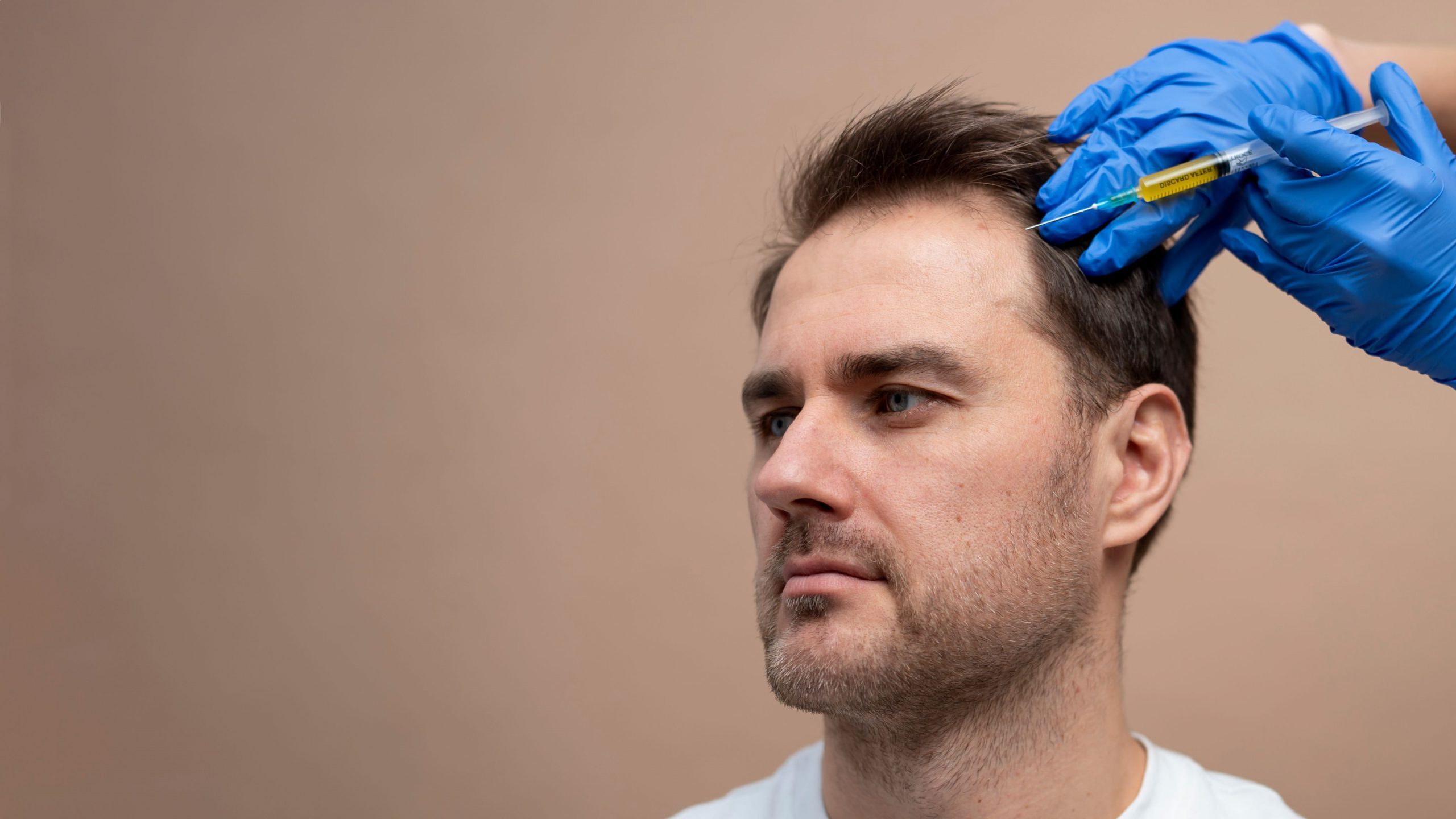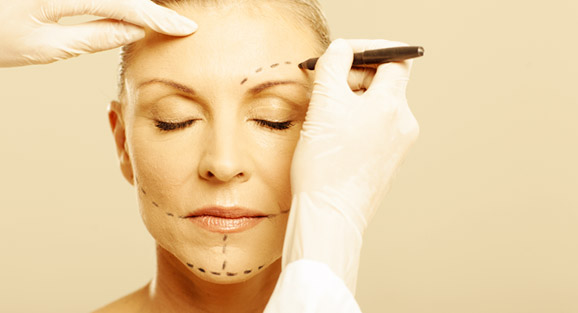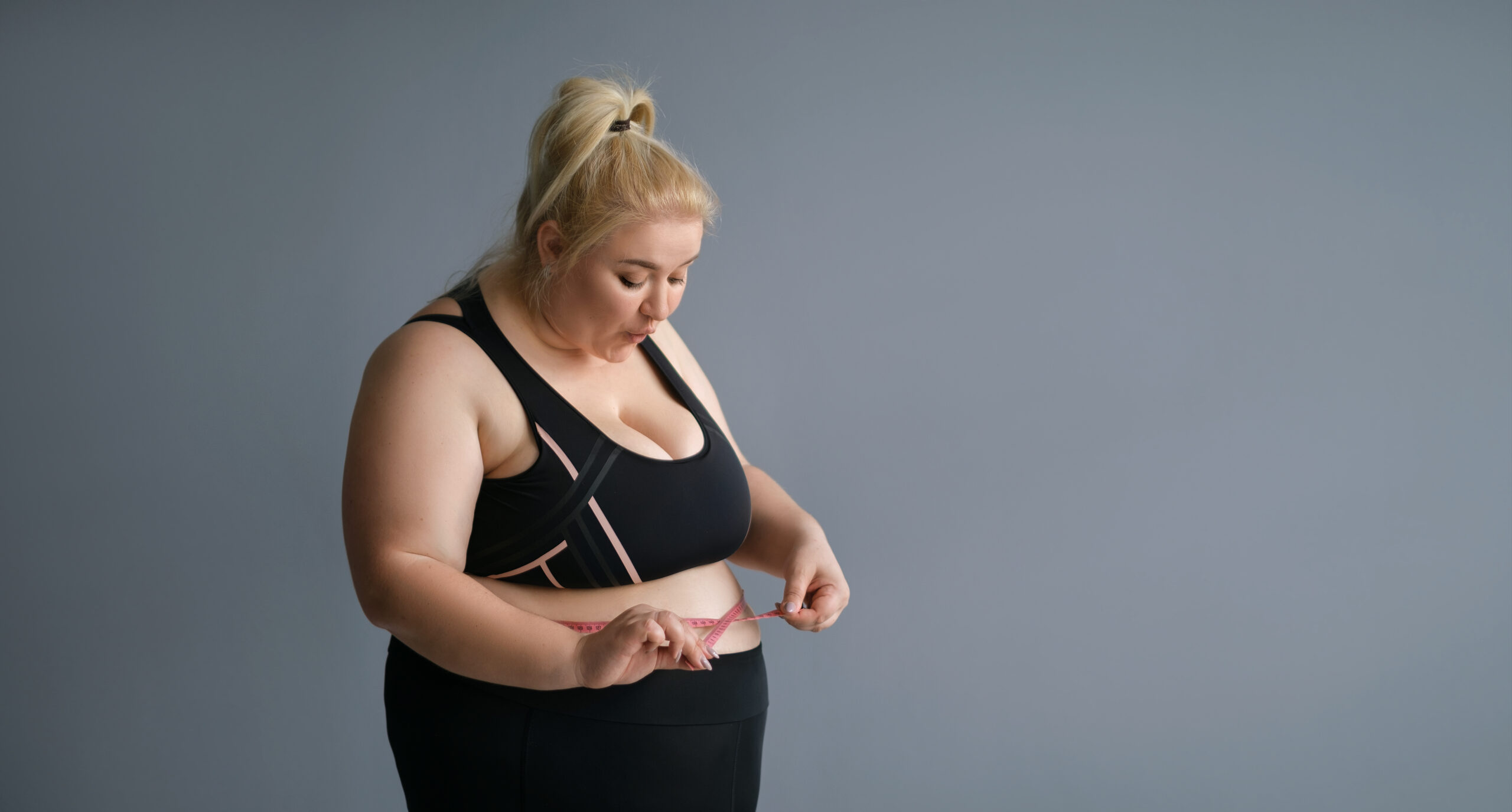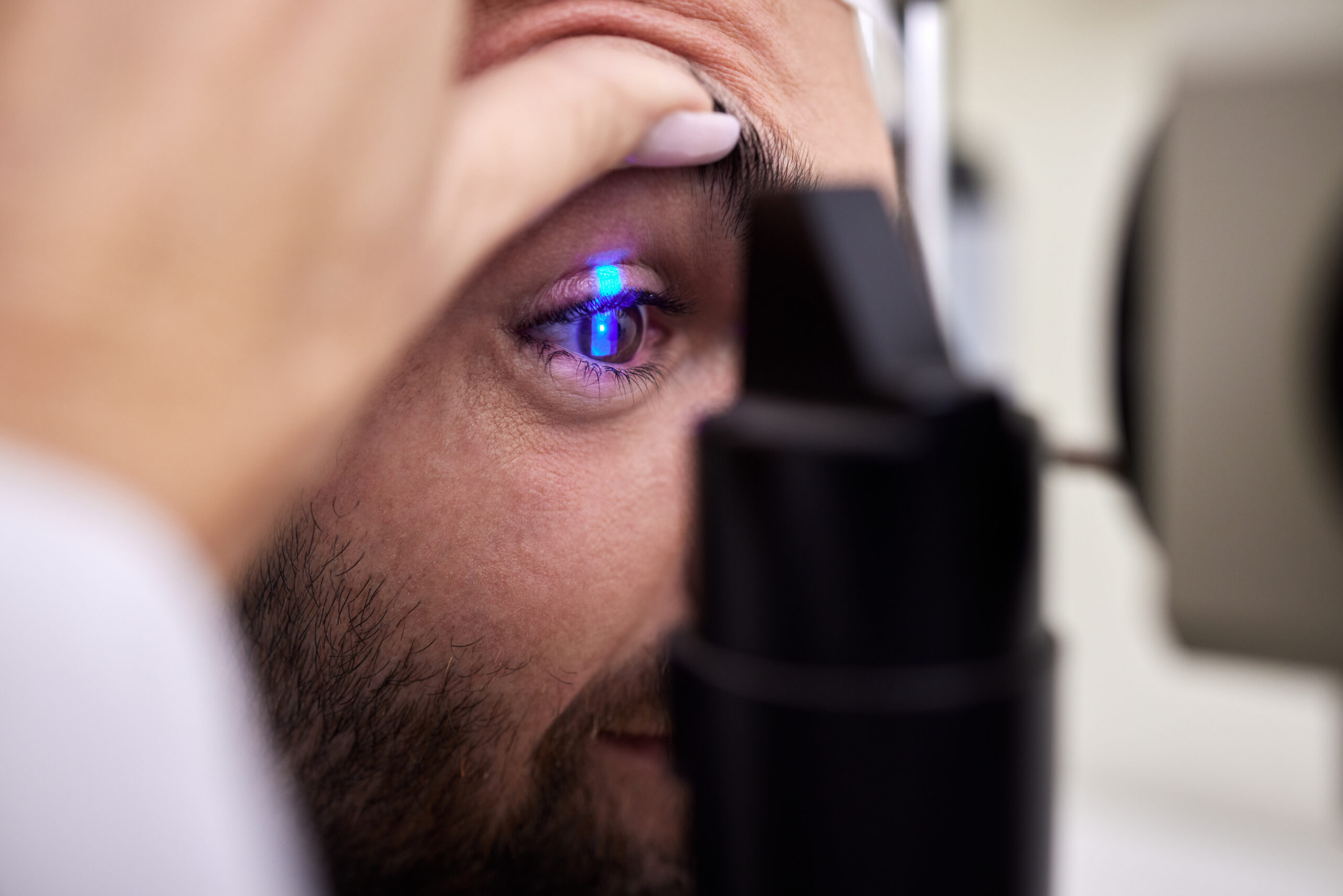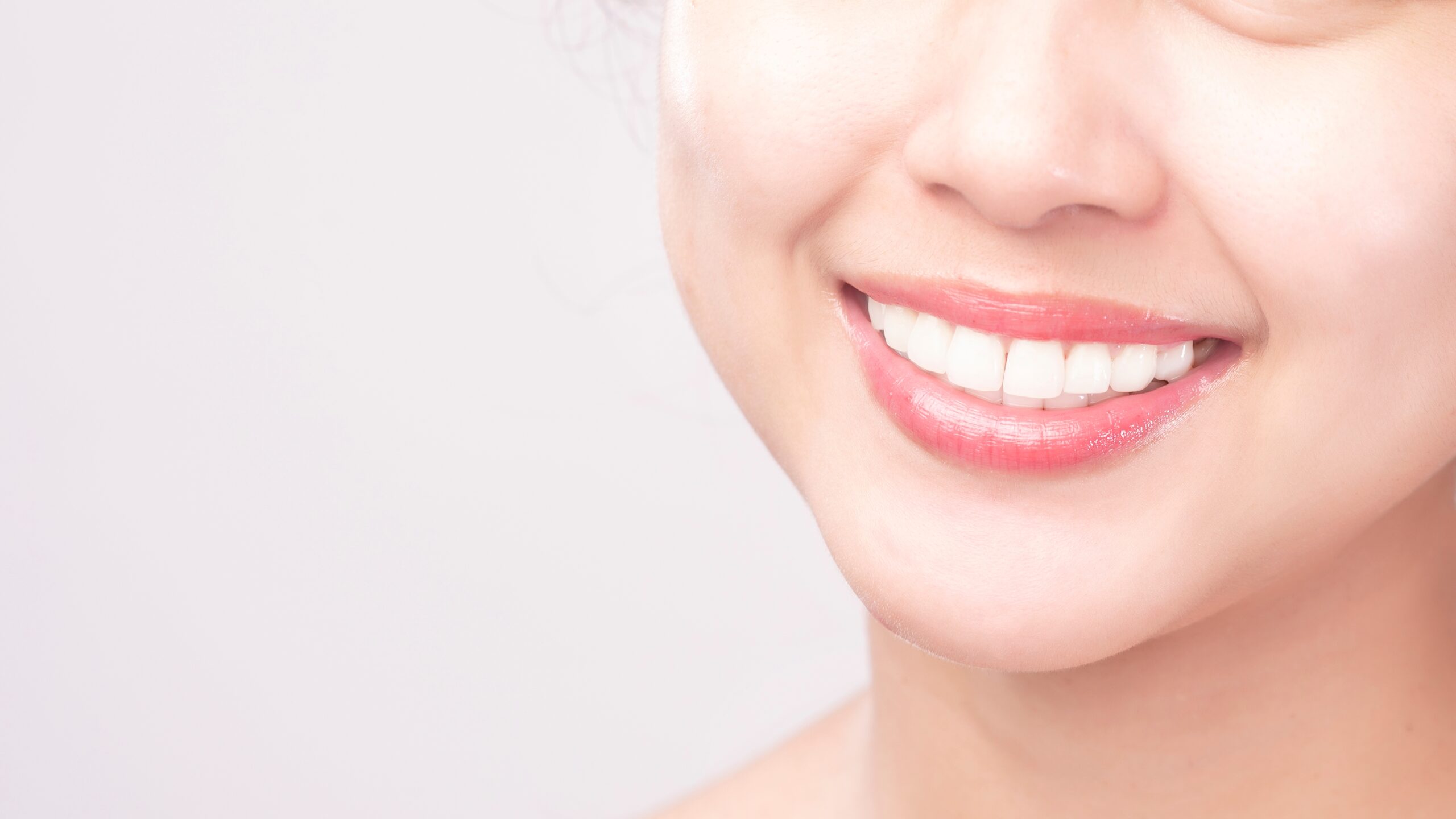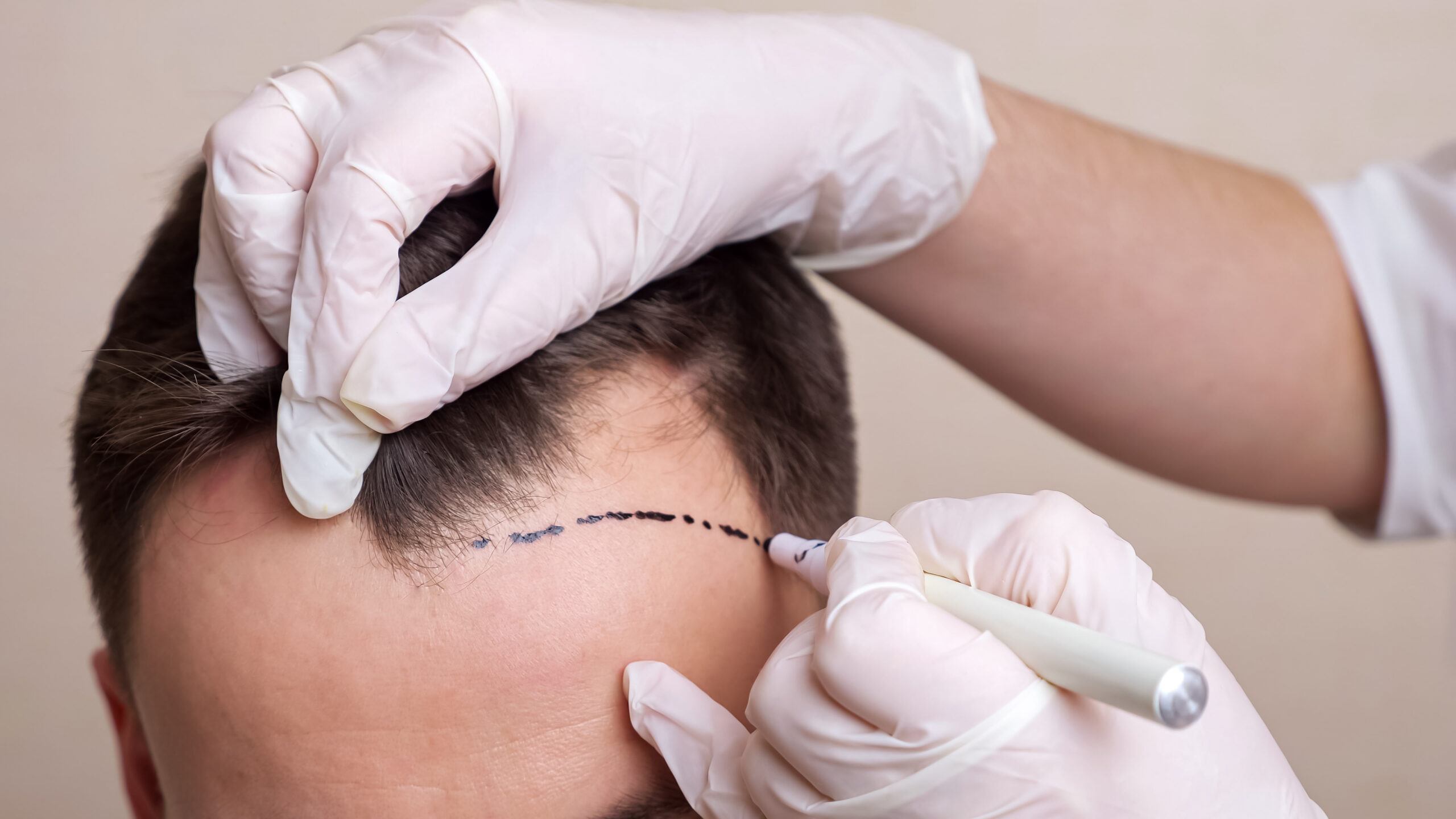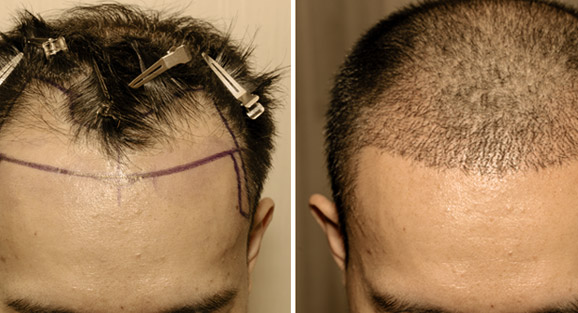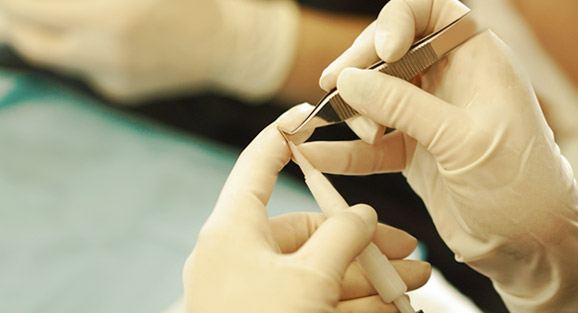DHI (Unshaven)
Hair Transplant
Stages of DHI Hair Transplantation Procedure
1. Conducting a detailed hair analysis
2. Determining and marking the recipient area and the hairline
3. Identifying and marking the donor area for graft extraction
4. Administering local anesthesia
5. Collecting individual hair follicles using special pens called Choi pens
6. Providing a break for the person to have a meal
7. Implanting the follicles into the scalp without the need for creating channels using Choi pens
8. Applying a dressing to the donor area.
These information reflect the general process. However, the process can be different for each patient, and the stages can vary depending on the doctor’s evaluation and the patient’s needs.
Frequently Asked Questions
Is Season Important in Hair Transplantation?
The hair transplantation procedure can be performed in every season. However, each season offers some advantages and disadvantages for hair transplantation, so you can choose based on personal preferences and your location.
Fall and Spring: These are generally considered the most ideal seasons for hair transplantation. They provide more comfortable conditions for the recovery process after a hair transplant.
Winter: Winter is also an ideal season for hair transplantation, but if you live in a place with very harsh weather conditions, not being able to wear a hat or beanie for a while may be challenging.
Summer: High temperatures, sweating, and the harmful effects of the sun can have a negative impact on the recovery process after hair transplantation. You may also need to avoid activities involving water, such as swimming in the sea or pool for a while. However, with proper precautions or if you live in a place with milder summers, this season can also be ideal for hair transplantation.
What determines the price of hair transplantation? What should be considered when comparing hair transplant prices?
The experience and expertise of the hair transplant doctor and team, the quality of the equipment used, and the location where the procedures are performed are the most significant factors affecting prices. Additionally, the techniques used for hair transplantation can have different costs. As a result, hair transplant prices vary depending on personal needs and the factors you prefer.
Key factors to consider when determining and comparing hair transplant prices:
1. Doctor and Team Experience: The hair transplant procedure should be performed by an experienced and expert surgeon or technician and their team. As the experience of the doctor and team increases, prices may also rise, but experience is crucial for quality and results.
2. Clinic Quality and Location: The quality of the clinic where the procedure is conducted and its central location within the city can impact hair transplant prices.
3. Technique Used: Various techniques are available for hair transplantation (such as FUE, SAPPHIRE DHI, etc.), and each technique may have different pricing. It is important to determine which technique is most suitable for you.
4. Graft Count: Depending on your needs, the number of grafts to be transplanted can affect the price. More grafts generally mean higher costs.
5. Post-Procedure Care: Post-procedure visits, medications, or other care services may be included in the price or result in additional costs.
6. Comprehensive Packages and Additional Services: Some clinics may include extras like accommodation, transportation, and local services in their hair transplant packages. These packages can influence the price.
7. Promotions and Discounts: Some clinics offer discounts during specific periods or promotions. Researching such opportunities is important.
8. Reasonable and Extremely Low Prices: Be cautious if there is a significant price difference between options. Extremely low prices often indicate potential issues with quality, reliability, or results.
What are the factors that affect hair transplant results?
The results of hair transplantation can vary depending on the patient’s genetic characteristics, age, post-transplant care, and the experience of the doctor and team performing the transplant. Factors such as hair color, thickness, texture, and growth rate can also influence the transplant results. Patients following post-surgical instructions can promote wound healing and the healthy growth of transplanted hair. Regularly using medications and providing proper care can have a positive impact on the results.
What are the prices for hair transplantation?
Hair transplant prices may vary depending on the needs and preferences of the patient.
Graft is the unit of hair follicles used in hair transplantation. The degree of hair loss and the desired hair density determine the number of grafts to be transplanted. Hair transplant prices are determined according to the number of grafts to be transplanted.
A team experienced and specialised in hair transplantation may demand higher prices. However, choosing an experienced surgeon will help you achieve better results.
The methods to be used in hair transplantation (DHI, FUE, Sapphire FUE) have different prices.
What is the price of beard transplantation?
Beard transplant prices may vary depending on many variable factors.
Prices in beard transplantation are determined according to the number of grafts to be transplanted.
The method used for beard transplantation affects the prices.
Prices vary according to the quality of the institution where the transplantation is performed and the experience of the doctor performing the procedure.
When can the hair be combed after hair transplantation?
Post-transplant care is one of the significant factors that influence the success of the procedure. A certain period is required for the hair follicles to anchor after being transplanted. It is recommended that the patient avoids touching the transplanted area as much as possible during this period. Unwanted contact can dislodge the transplanted hair follicles, reducing the success of the procedure. Therefore, the use of combs is not advised until the hair follicles are fully settled.
Using combs becomes permissible when the transplanted hair reaches a length suitable for combing, typically between 6 to 12 months after the procedure. However, particularly for the first year after the transplant, combs that do not pull or scrape the roots should be used, combing should be done carefully, and this process should not be performed too frequently.
Every hair transplant procedure and the patient’s recovery process are unique, so it is essential to follow the post-transplant care instructions. Your hair transplant specialist can guide you on when and how to comb your hair.
Is it allowed to wear a hat after hair transplantation?
A hat can be worn to camouflage the post-transplantation area after a hair transplant. However, these hats are specially designed for post-transplant use, and they must not come into contact with the transplanted hair area.
When can I start sports after hair transplantation?
It is recommended to avoid heavy exercise or sports activities for the first few weeks after hair transplantation. During this time, the body needs to rest and avoid putting pressure on the surgical site. Avoiding excessively strenuous exercises during the healing process may cause the grafts to slip out of place and negatively affect healing.
Remember that every patient is different and the speed of recovery may vary depending on personal factors. Therefore, it is important to follow your doctor’s instructions and carefully follow the healing process to protect your health and the success of the hair transplantation. Your doctor will provide clear guidance on when you can start sports.
How should nutrition be after hair transplantation?
Protein is the building block of hair. Consuming enough protein after hair transplantation can help the transplanted hair follicles grow quickly and healthily. Good sources of protein include chicken, fish, eggs, dairy products, red meat and legumes.
Especially vitamins A, C, E, B vitamins, iron and zinc are critical for hair health. Therefore, a balanced diet including a variety of nutrients such as fruit, vegetables, whole grain products, nuts and seeds is important.
Excessive sugar consumption can increase inflammation and negatively affect hair health. It is important to avoid refined sugars and processed foods.
After hair transplantation, salt-free or low-salt foods should be consumed for 1 week, coffee, carbonated drinks should not be consumed for 10 days, alcohol and smoking should be avoided for 15 days.



